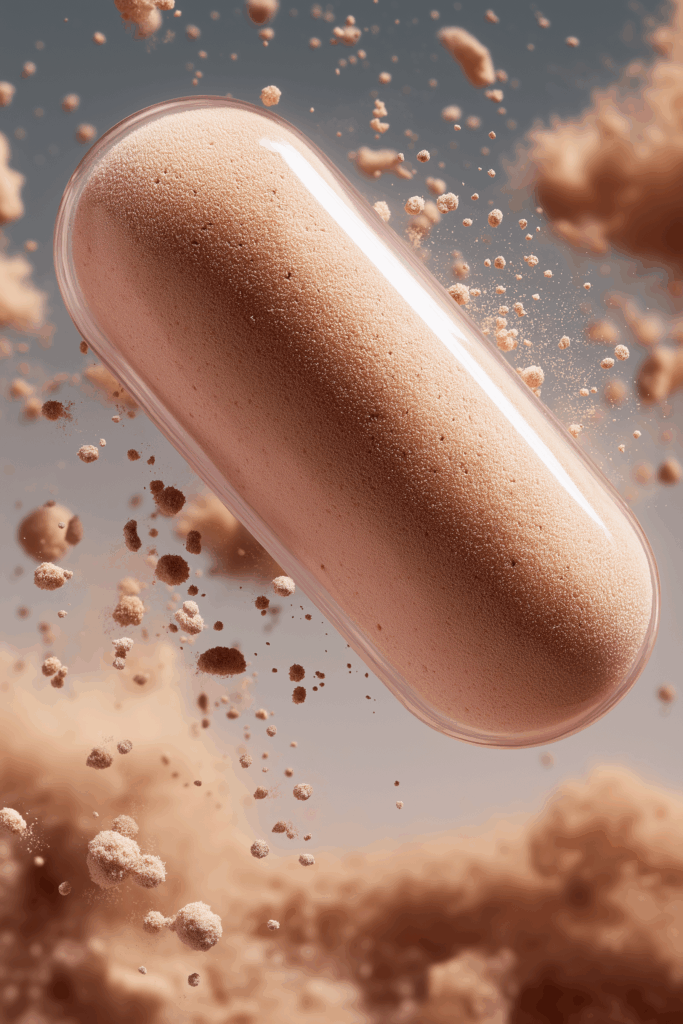Protein and Creatine: The Truth Behind Two of the Most Researched Supplements

NUTRITION
Protein and Creatine: The Truth Behind Two of the Most Researched Supplements
05 - 26 - 2025
Protein and Creatine: The Truth Behind Two of the Most Researched Supplements
Introduction to Supplements
Supplements can feel like a modern-day treasure hunt. Everyone’s chasing that one scoop, capsule, or gummy that will finally unlock their peak performance. But when it comes to proven, science-backed support? Two names consistently rise above the noise: protein and creatine.
Let’s cut through the fluff and get real about what they do, where they came from, and which common myths are ready to be retired—for good.
Why We Supplement in the First Place
Life’s hectic. Whether you’re training for a marathon, trying to stay toned, or just managing back-to-back Zoom calls, most of us need help hitting our nutrition targets. Supplements aren’t magic, but they’re a practical tool to support energy, recovery, and performance.
The Popularity of Protein and Creatine
Protein and creatine are two of the most studied supplements in the world. Not just by fitness bros in tank tops, but by medical researchers, longevity experts, and even neurologists.
Protein 101
What Protein Does in the Body
Think of protein as your body’s construction crew. It repairs muscle tissue after workouts, helps regulate hormones, supports metabolism, and plays a key role in skin, nails, hair, and immunity.
Types of Protein Supplements
- Whey: Fast-digesting, rich in amino acids.
- Casein: Slow-release, great before bed.
- Plant-based: Pea, hemp, and rice blends are ideal for vegans and those that are lactose intolerant.
- Collagen: Supports joints, skin, and bones—not a muscle builder.
Ideal Timing and Dosage
Aim for 20–30g of protein per meal. Post-workout is prime time, but spreading it out across the day helps optimize absorption and results.
Creatine 101
How Creatine Works in the Body
Creatine helps produce ATP—the energy currency your muscles use for short, explosive movements. More ATP = better strength and power output.
Creatine Monohydrate vs. Others
Monohydrate is king. It’s the most studied, most effective, and most affordable form. Other types (like HCL or ethyl ester) haven’t consistently outperformed it.
Dosing and Loading
A common protocol: 3–5g daily. Loading (20g for 5–7 days) may speed up saturation but isn’t necessary. Just stay consistent.
Myth vs. Fact: Protein Edition
- 🚫 Myth: “Too Much Protein Damages Your Kidneys”
✅ Fact: In healthy individuals, high protein intake doesn’t harm kidney function. Unless you already have kidney issues, you’re safe. - 🚫 Myth: “You Need Protein Shakes to Gain Muscle”
✅ Fact: Whole foods work too. Shakes are just convenient, especially when you’re in a rush. - 🚫 Myth: “More Protein = More Muscle”
✅ Fact: Muscle growth requires resistance training + protein. Eat 200g a day without lifting and…you’ll just be full, not jacked.
Myth vs. Fact: Creatine Edition
- 🚫 Myth: “Creatine is a Steroid”
✅ Fact: Creatine is found naturally in meat and fish. It’s not hormonal. Not a steroid. Just science. - 🚫 Myth: “Creatine Causes Water Retention and Bloating”
✅ Fact: Some people retain a little water inside muscles (not under skin), which may make you look fuller—not puffier. - 🚫 Myth: “You Have to Cycle Creatine”
✅ Fact: There’s no evidence cycling is necessary. Long-term use is safe and effective.
Additional Benefits Beyond Muscle
Protein’s Role in Hair, Skin, and Immunity
Beauty and immunity start from within. Protein provides the building blocks (amino acids) for glowing skin, strong nails, and a healthy immune response.
Creatine’s Brain Boosting Potential
New studies suggest creatine may help with memory, cognitive processing, and even depression. Athletes and academics alike can benefit.
Who Should Consider Supplementing?
- Athletes and Fitness Enthusiasts: Whether you’re lifting heavy or running sprints, protein and creatine support recovery and performance.
- Older Adults and Injury Recovery: Creatine helps prevent muscle loss (sarcopenia) during aging. Protein helps heal tissue after surgery or injury.
- Busy Professionals and Appetite Control: Protein keeps you full longer. That mid-afternoon snack binge? Might not happen if your lunch had enough protein.
Are There Any Risks?
When Supplements Are Misused
Overdoing anything can backfire. Over-supplementing without proper diet or hydration can lead to GI issues or imbalance.
Talking to a Healthcare Professional
If you’re pregnant, breastfeeding, or managing a medical condition, check with your doctor first—especially before adding supplements to your routine.
Real Talk: Are These Supplements Worth It?
Short answer? Yes.
Long answer? Absolutely, if used the right way.
Protein and creatine are two of the most researched, most reliable tools in the health and fitness toolkit. They’re not shortcuts—but they can make the journey more efficient, effective, and sustainable.
Conclusion
Protein and creatine have earned their spotlight for good reason. They’re not fads. They’re fundamentals. Whether you’re chasing gains, better brainpower, or simply trying to feel stronger and sharper, these two supplements deliver when backed by smart nutrition and solid training.
FAQs
- Q1: Can I take protein and creatine together?
Yes! In fact, many people mix them in the same post-workout shake. No interactions, just synergy. - Q2: What’s the best time to take creatine?
Post-workout is popular, but consistency is more important than timing. Just pick a time you’ll stick to. - Q3: Are plant-based protein powders as good as whey?
They can be! Look for complete amino acid profiles or blends to match whey’s effectiveness. - Q4: Do I need to “load” creatine for it to work?
Nope. Loading can speed things up, but daily use of 3–5g works just fine over time. - Q5: How much protein do I really need a day?
General rule: 0.7 to 1 gram per pound of body weight if you’re active. But goals, body type, and age matter too.
– Better Body, Better You
